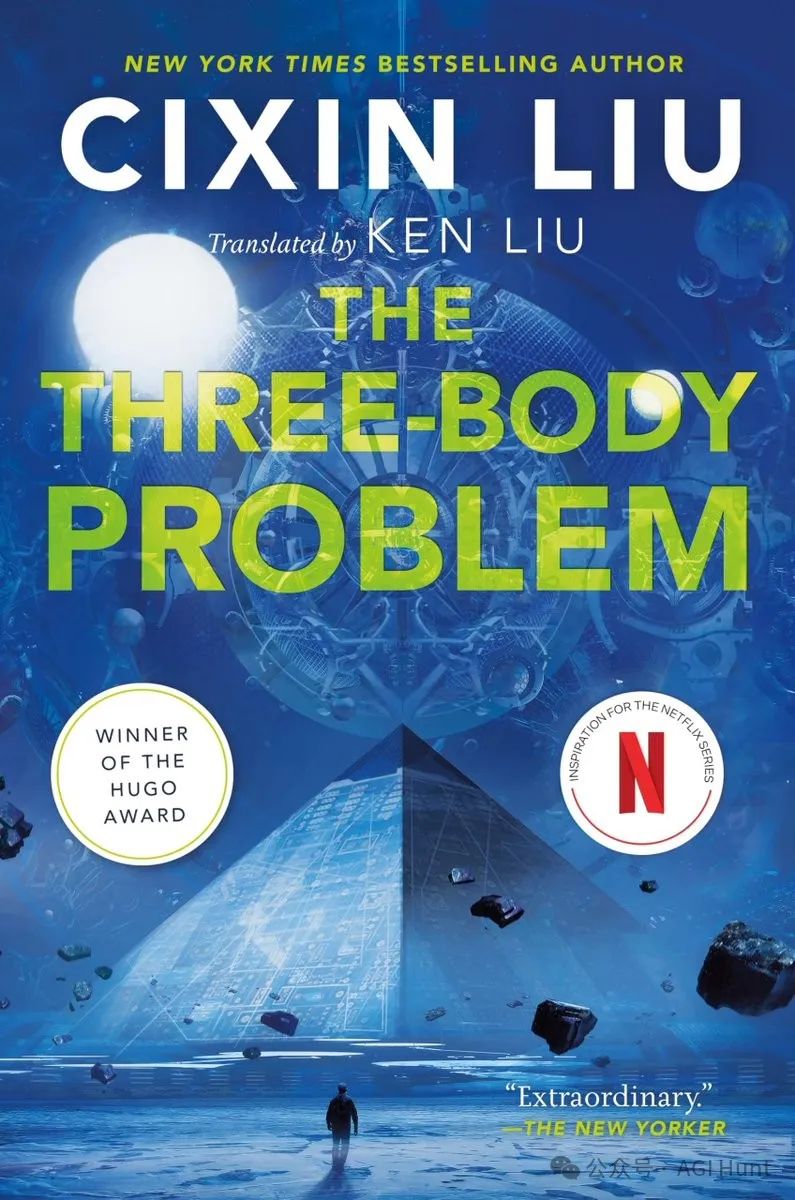特斯拉前AI总监、OpenAI创始团队成员Andrej Karpathy读完200本书后,道破了超级人工智能的恐怖真相!

在他读过的近200本书中,有几本对AI和技术发展的洞察让人细思极恐。
特别是其中关于超级智能、信息技术演变和未来战争的预测,值得我们深思。
超级智能:远超人类想象的存在
科幻小说「深渊之火 – A Fire Upon the Deep」第一章就让Karpathy震撼不已。
这本书展现了超级智能的真实样貌,其描述之精准,以至于多年后他仍然难以忘怀。
要知道,这可是一位亲手打造Tesla自动驾驶系统的AI专家都感到震惊的描述啊!
人工智能的「悲欢离合」
经典科幻小说「阿尔吉侬之花 – Flowers of Algernon」更是让Karpathy印象深刻。
这部关于智能提升与衰退的「杰作」,或许暗示了AI发展可能遇到的困境?
Ted Chiang的短篇小说集更是引人深思,特别是「软件对象的生命周期 – The Lifecycle of Software Objects」,深刻探讨了AI系统的「成长」问题。
这些故事不仅展现了作者对技术的深刻理解,更预见了很多我们现在才开始面对的AI伦理问题。
控制权之争:AI时代的警示
「The Master Switch」一书揭示了一个惊人的规律:所有信息技术都会经历从分散到集中的循环。从电报、电话到互联网,无一例外。
这个规律放到AI领域会怎样?
大语言模型作为新一代信息技术,是否也会重蹈覆辙?
数字战争的新维度
「零日倒计时 – Countdown to Zero Day」一书更是敲响了警钟。
这本关于Stuxnet病毒的深度分析,揭示了数字战争和AI安全的重要联系。
在超级智能时代,这种威胁会以何种方式演变?
这个问题值得每个AI从业者深思。
基因视角下的AI演化
「自私的基因 – The Selfish Gene」虽然是本生物学著作,但其对「基因才是进化选择单位」的洞察,让人不禁联想到AI系统的演化规律。
这种视角下,AI的发展会不会也遵循类似的选择机制?
有限的人类视角
「茫茫世界 – An Immense World」则让我们意识到人类感知能力的局限。
如果我们连现实世界都只能感知很小一部分,那么面对超越人类智能的AI时,我们是否真的能洞察它们的本质?

Andrej 最后提到,自己对于《三体》系列有所保留,尤其是对其中某些部分印象深刻,但整体阅读过程略显冗长。
这些书籍虽然涉及不同领域,但它们共同描绘出了一幅关于技术、智能和人类未来的深刻图景。
这些场景的雏形,或许已经在我们身边悄然显现。
附原文:
Of ~200 books I’ve read, the few that stayed with me over time and I find myself often thinking back to or referring to, in ~random order:
All short stories by Ted Chiang, especially Exhalation, Division By Zero, Understand, The Story of Your Life, Liking What You See, The Lifecycle of Software Objects, What’s Expected of us, just excellent themes ideas and reading all around.
The Selfish Gene (nonfiction) – a classic for understanding evolution and natural selection, especially the realization that the gene is closer to the real unit of selection more than an individual, explaining altruism and colonies and a lot more.
The Lord of the Rings (fantasy) – I return to LoTR all the time for comfort. I don’t think anyone else has created a high fantasy Universe this complex, with so much mythology, symbolism, new languages, mysterious system of magic, ancient and powerful beings and artifacts, beautiful writing and dialog, themes of courage, friendship and heroism, the list goes on and on… You’re thrown into a world with characters and references to so many things that are part of this ancient world and never really introduced. There’s always more to find on each reading.
The Martian (~scifi) – top tier science porn, competence porn, fast paced and fun.
The Vital Question (nonfiction) – First time I intuitively grokked the bridge from geology to biology, the origin of life, and likelihood of life in the Universe at large at various stages of complexity and development. Also all other Nick Lane books.
How To Live by Derek Sivers (nonfiction) – 27 conflicting answers to how to live life. Emphasizing the diversity of consistent and possible answers to the meaning and goals of life.
1984 (nonfiction) – Classic. Newspeak, Ministry of Truth, Doublethink, Thoughtcrime, Facecrime, Unperson, the list just keeps on going. Chilling world-building and the realization that weaker equivalents of everything exist.
In Defense of Food by Pollan (nonfiction/food) – Eat food. Not too much. Mostly plants. The book that first taught me to avoid the entire center of every grocery store and only shop on the outer ring. The realization that the food industry is out of control and the things they do with your food, what they put into it, what they are allowed to do, and how they are allowed to market it to you is quite a lot worse than I thought.
The Accidental Superpower by Zeihan (nonfiction/geopolitcs) – I’ve found Zeihan to be a bit of a mixed bag over time but I still remember his books (esp this one) to be elucidating on geopolitics.
Countdown to Zero Day (nonfiction/cyberwarfare) – Goes into detail on Stuxnet, imo very important and highly elucidating reading on cybersecurity, the future of warfare, and AGI.
A Fire Upon the Deep (scifi) – Chapter one only, incredible portrayal of what superintelligence will be like that has stayed with me since.
Guns Germs and Steel (nonfiction/history) – I’d probably recommend a summary of this book more than the book itself. I remember it being very dry, but it was very interesting because it is a comprehensive analysis of the resources grid (food, animals, freshwater, climate, …) in our real-world game of Civilization, and the implications there of.
Flowers of Algernon (scifi) – Just a totally crushing masterpiece on intelligence.
Atlas Shrugged (scifi) – No one finishes this I think but the first few chapters and its worldbuilding are enough and, once seen in an exaggerated form in fiction, elements of it cannot be fully unseen in reality.
An Immense World (nonfiction/bio, by Yong, among others of his) – Nice book on so many different sensors used by various animals, you repeatedly realize human senses are super inadequate and that we only measure such a tiny sliver of reality.
The Master Switch (nonfiction/tech history, by Wu) – history of information technologies telegraph, telephony, radio, television, film, cable television, internet and the pattern of “The Cycle”, where each medium starts decentralized, open and idealistic and then progresses towards centralization, control and oligopoly, for the very similar reasons, by very similar means, and usually at the expense of diversity, innovation and technological progress. Quite a few connections to draw on for LLMs, which are after all an information technology too.
(I take recommendations for more that are likely to make this list!)
相关链接
[1] 原文链接: https://twitter.com/karpathy/status/1865927782301372439
(文:AGI Hunt)

